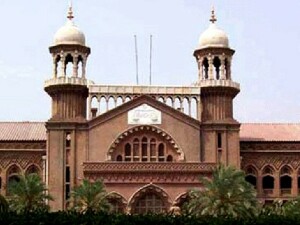LAHORE: The Federation of Pakistan Chambers of Commerce and Industry’s Businessmen Panel (BMP) has asked the upcoming government to give priority to the economic recovery, emphasizing the necessity of joint efforts to tackle Pakistan’s economic difficulties.
Addressing a meeting held here today, the Businessmen Panel (BMP) Chairman Mian Anjum Nisar expressed confidence in the country’s ability to overcome these challenges and highlighted the new government should fulfill the commitment to eradicating poverty and unemployment.
The upcoming government should remain steadfast in its commitment to guide Pakistan through its current economic and political challenges, with a focus on unity, effective governance, and public welfare.
The country has had trouble raising enough money to cover its expenses. Due to the low tax-to-GDP ratio, borrowing and outside help are heavily relied upon to close the fiscal imbalance. In Pakistan, there is a recurring budget deficit because the government spends more than it takes in. The national debt burden has risen, as a result, needing substantial financial resources for debt repayment. Both internal and external debt in Pakistan has been constantly rising.
The budget is largely consumed by debt servicing; leaving little money for social welfare and development initiatives. Circular debt, which is the accumulation of unpaid invoices and pending payments among power generation firms, distribution companies, and the government, is a problem in Pakistan’s energy sector.
This problem has a significant negative impact on the power sector’s finances and hinders its ability to meet the rising energy demand.
Other troubling issues also exist, posing obstacles to our economy’s expansion. Pakistan is ranked 173rd internationally for tax payments. According to a World Bank analysis, Pakistani businesspeople pay 47 taxes yearly, compared to those of Hong Kong, the United Arab Emirates, Ireland, Malaysia, Sri Lanka, and India, which are the countries with whom Pakistan must compete.
A single business that conducts business in four different Pakistani provinces annually disburses five corporate income taxes, twelve employer-paid pension contributions, twelve Social Security payments, one property tax, one professional tax, one vehicle tax, one stamp duty payment, one fuel tax payment, and twelve payments of goods and sales tax. An exporter needs 75 hours to complete border compliance and document compliance. Additionally, Pakistan dropped 23 spots on the indicator for corporate loan availability.
The nation was ranked 105th this year as opposed to 82nd last year. There wasn’t much money left to fund the company’s expansion because of the government’s expanding budget financing requirements. Pakistan’s Human Development Index as of 2022 is 0.544, placing it 161st out of 192 nations.
The HDI of Pakistan is among the lowest in Asia, right below Yemen and Afghanistan. The country dropped one spot, moving to positions 142 and 170 on the indices for registering businesses and properties, respectively.
There are 12 different treatments, and it takes roughly 18 days to finish them all. Similarly to that, it took many days to register a property. The nation climbed nine spots in the rating for handling building permits, landing at position 141. It takes an investor 252 days to complete 15 different types of procedures to obtain a building permit.
The BMP chairman said that the new government that comes into office will have its work sharply cut out as far as the economic challenges are concerned. Coming at the back of fast-unfolding climate change crisis and recent COVID pandemic that pushed millions into poverty with little fiscal capacity of government to provide anywhere near close to what was needed in stimulus spending.
Then there is acute debt distress, and seriously high inflation at the back of global aggregate supply shock, and accentuated by a world of rising conflicts, mainly in Ukraine, and the Middle East.
Mian Anjum Nisar said that even though Pakistan’s economic crisis in 2022-2023 is a recurring factor in the country’s political unrest, it has a history of ignoring the nation’s true issues, which include poor governance, a broken judicial system, outdated laws, complicated tax system, lack of transparency, duplication in the government system, ineffective bureaucracy, improper use of our human, natural and water resources, lack of efficient local government, inadequate/unreliable data for country’s planning, and the consistent flaws in policies in execution by the government departments.
Pakistan’s GDP growth rate has always remained below its potential despite efforts to boost economic growth. The development of important sectors and investment prospects was hampered by inadequate revenue collection, structural problems, and governance issues.
Since it has been causing serious governance and economic issues for years, the cost of goods, food, petrol, and other necessities has increased, and inflation has almost reached 45 percent, which is not bearable for the common man.
On the other hand, there has been an increase in dissatisfaction among the public that no state institution is performing well and to save them from the haughtiness and bad administration pervasive in the system. The only way for this to go from a failure to a success story, as in other countries, is if the federal and provincial governments defy them and pursue fundamental changes in governance, fairness, openness, accountability, and the consistent economic policies minimum for 15 years.
Copyright Business Recorder, 2024




















Comments
Comments are closed.